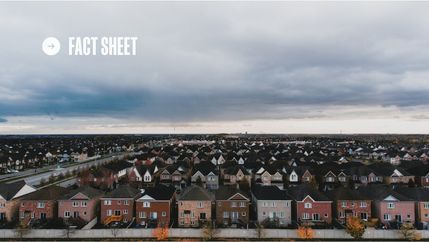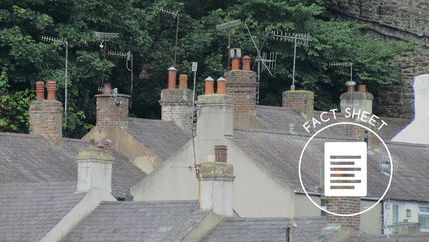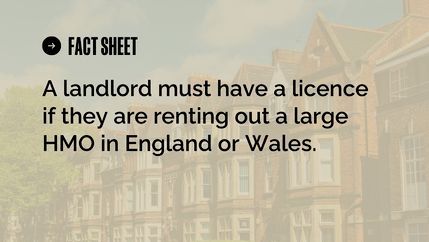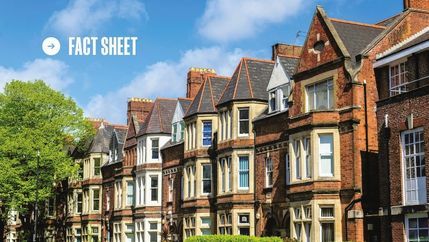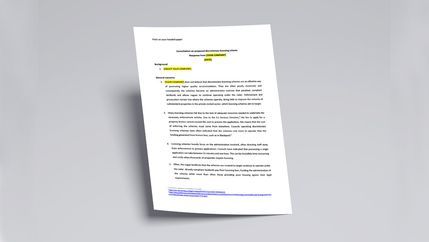What is Selective Licensing?
The Housing Act 2004 allows local authorities to apply for Selective Licensing of privately rented properties in areas which are experiencing low housing demand and/or suffering from anti-social behaviour.
Selective Licensing in Wales
The Welsh Assembly exercised its powers under the Act to determine additional ‘conditions’ for designating an area. For instance, the regulations allow local housing authorities in Wales to apply for Selective Licensing designation where a district, or an area in their district, comprises a minimum of 25 per cent of housing stock let by a private sector landlord.
Mandatory and additional licensing for Houses in Multiple Occupation
The Housing Act 2004 introduced licensing for Houses in Multiple Occupation (HMOs). Under the law, there are different types of HMO licensing as outlined below:
Mandatory licensing (England)
From 1 October 2018, any landlord who lets a property to five or more people from two or more separate households must be licensed by their local authority.
Large HMOs (Wales)
A property with three or more storeys and at least five occupants who do not form a single household must be licensed.
Additional licensing (England and Wales)
This is when a local authority can impose a licence on other categories of HMOs in its area which are not subject to mandatory licensing.
Fact sheets for members
Fact sheet: Selective licensing
The Housing Act 2004 allows local authorities to apply for Selective Licensing of privately rented properties in areas which are experiencing low housing demand and/or suffering from anti-social behaviour. The same Act also introduced a new licensing regime for Houses in Multiple Occupation (HMO).
Fact sheet: Selective Licensing (Wales)
The Housing Act 2004 allows local authorities in England and Wales to apply for Selective Licensing of privately rented properties in areas which are experiencing low housing demand and/or suffering from anti-social behaviour.
Fact sheet: Licensing of Houses in Multiple Occupation (HMOs)
In May 2015, the UK Government announced that they would extend mandatory licensing of HMOs to address poor conditions and overcrowding. Under the Housing Act 2004, an HMO is a property rented out by at least three people who are not from one ‘household’ but share facilities like the bathroom and kitchen.
Fact sheet: Additional licensing
The Housing Act 2004 introduced licensing for Houses in Multiple Occupation (HMOs). Additional licensing is when a local authority can impose a licence on other categories of HMOs in its area which are not subject to mandatory licensing.
Propertymark's position: A collaborative approach is needed
We regularly respond to consultations objecting to the introduction of licensing schemes because we strongly disagree that licensing is the best method to improve housing stock within the private rented sector (PRS).
We believe that local authorities should adopt a collaborative approach, building better relationships with letting agents, landlords, professional bodies and public services to tackle issues within the PRS.
Local authorities should be providing access to information, education, and support as a more credible way to gain buy-in and raise standards over the long term. This approach recognises and rewards landlords and letting agents who adhere to good practice and enables local authorities to target their resources on effective intelligence-led enforcement.
Our landlord licensing concerns
Lack of resources
Many licensing schemes fail due to the lack of adequate resources needed to undertake the necessary enforcement activity. Due to the EU Services Directive, the fee to apply for a licence cannot exceed the cost to process the application, meaning that the cost of enforcing the schemes must come from elsewhere. Councils operating licensing schemes have often indicated that the schemes cost more to operate than the funding they receive from licence fees.
Administrative exercise
Licensing schemes focus heavily on the administration involved, often directing staff away from enforcement to process applications. Councils have indicated that processing a single application can take between 15–60 minutes. This can be incredibly time consuming and costly when thousands of properties require licensing.
Penalising compliant landlords and agents
Rogue landlords and agents that the schemes are created to target often continue to operate under the radar. Landlords and agents who are already compliant, pay their licensing fees and fund the administration of the scheme whilst those providing poor housing regularly ignore their legal requirements.
The low number of prosecutions
The Housing and Planning Act 2016 allows civil penalty fines levied for offences in the private rented sector to be retained by the Local Authority for further enforcement. Research conducted in April 2018 by the Housing, Communities and Local Government Committee highlighted that overall local authorities rarely issue landlords and agents with penalties. Existing licensing schemes have demonstrated that only a small number of prosecutions occur. In 2016/17, 50 per cent of all prosecutions (out of 33 boroughs with licensing across England) came from Newham Borough Council.
Member representation
Over the years, we have responded to numerous local authority consultations, opposing the introduction of licensing schemes. Additionally, we have created a template that you can use to respond to any licensing consultations in your own area.
Licensing consultation template.docx
Is a discretionary licensing scheme being consulted on in your area? Edit and submit our Word template to your local authority.
Our latest consultation responses
Engagement, not licensing, is the key to higher standards
Propertymark has responded to consultations about plans to introduce additional or selective property licensing schemes in Enfield, Reading, and Wandsworth. We have objected to all the proposals because we strongly disagree that licensing is the best method to improve housing stock within the private rented sector (PRS).
Local short-term let rules are the only way to ensure balance
Responding to the Department for Culture, Media and Sport (DCMS) consultation on the registration options for a short-term lets (STLs) licensing scheme in England, Propertymark stated that any scheme should not be compulsory for local authorities if they can prove they are having no impact on private rented sector supply in their area.
Restrict licensing to priority areas only
Recognising the fact that some members in Wales operate for landlords of short-term holiday lets, Propertymark has responded to the Welsh Government’s consultation to establish a statutory licensing scheme for all visitor accommodation in Wales.

